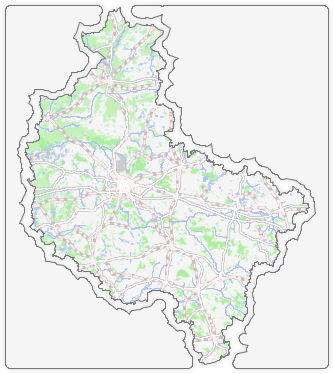Armadale
| Tytuł oryginalny: | Armadale |
|---|---|
| Autor: | Wilkie Collins (1824-1889) |
| Tłumacz: | Joanna Wadas |
| Lektor: | Krzysztof Plewako-Szczerbiński ... |
| Wyd. w latach: | 1866 - 2023 |
| Autotagi: | audiobooki CD dokumenty elektroniczne druk e-booki MP3 powieści proza |
| Więcej informacji... | |
|
|
|
|
|
|
Wypożycz w bibliotece pedagogicznej

Recenzje
Opis
| Inne tytuły: | Armadale Vol. II |
|---|---|
| Autor: | Wilkie Collins (1824-1889) |
| Tłumacz: | Joanna Wadas |
| Lektorzy: | Krzysztof Plewako-Szczerbiński Krzysztof Szczerbiński |
| Opracowanie: | Krzysztof Plewako-Szczerbiński Paweł Figat |
| Redakcja: | Catherine Peters |
| Dźwięk: | Paweł Figat |
| oraz: | Catherine Peters |
| Wydawcy: | KtoCzyta.pl (2022-2023) Legimi (2017-2023) IBUK Libra (2022) Ventigo Media (2022) ebookpoint BIBLIO (2018-2022) Phoemixx Classics Ebooks (2021) Jazzybee Verlag (2020) Heraclon International (2019) Heraclon International - Storybox. pl (2016-2019) NASBI (2018) Aeterna Classics (2018) Wydawnictwo MG Ewa Dorota Malinowska-Grupińska (2016-2018) Musaicum Books (2017) Oxford University Press (1999) Bernhard Tauchnitz (1866) Storybox.pl Heraclon International. Story Box.pl |
| Serie wydawnicze: | Oxford World's Classics Audiobook Audiobook - Heraclon International Collection of British Authors Collection of British and American Authors Tauchnitz Edition |
| ISBN: | 9783849658304 9783963762352 9783985945948 9788027232093 978-0-19-283467-6 978-83-7779-298-8 978-83-7779-301-5 978-83-8146-530-4 978-83-8146-738-4 978-83-8292-591-3 978-83-8146-730-4 |
| Autotagi: | audiobooki beletrystyka bibliografie CD dokumenty elektroniczne druk e-booki epika książki literatura literatura piękna literatura stosowana MP3 nagrania powieści proza rodzina zasoby elektroniczne |
Powyżej zostały przedstawione dane zebrane automatycznie z treści
32 rekordów bibliograficznych,
pochodzących
z bibliotek lub od wydawców. Nie należy ich traktować jako opisu jednego konkretnego wydania lub przedmiotu.
z bibliotek lub od wydawców. Nie należy ich traktować jako opisu jednego konkretnego wydania lub przedmiotu.



































